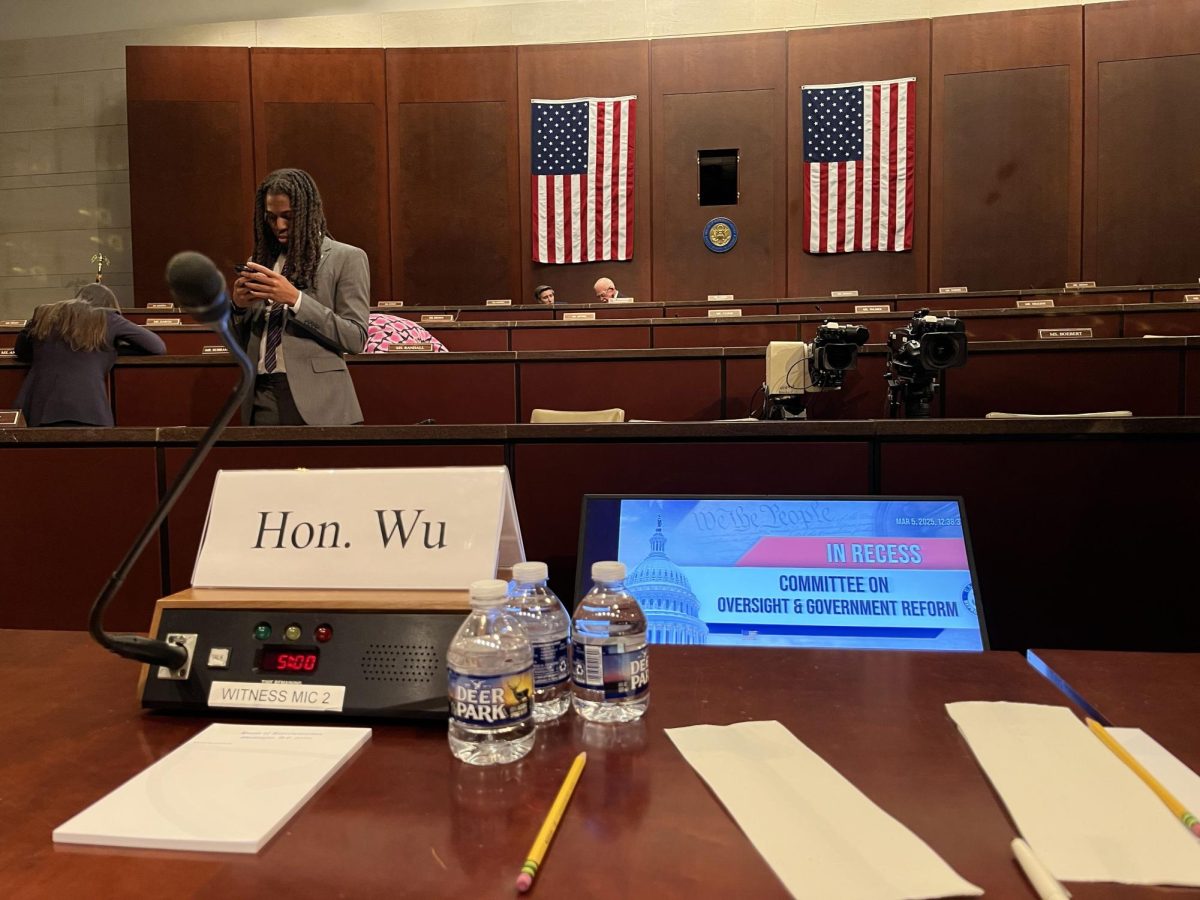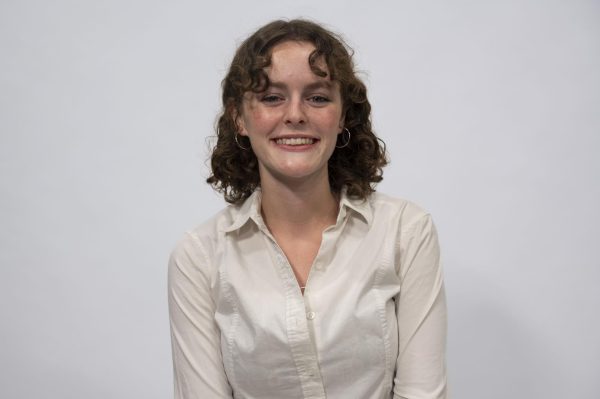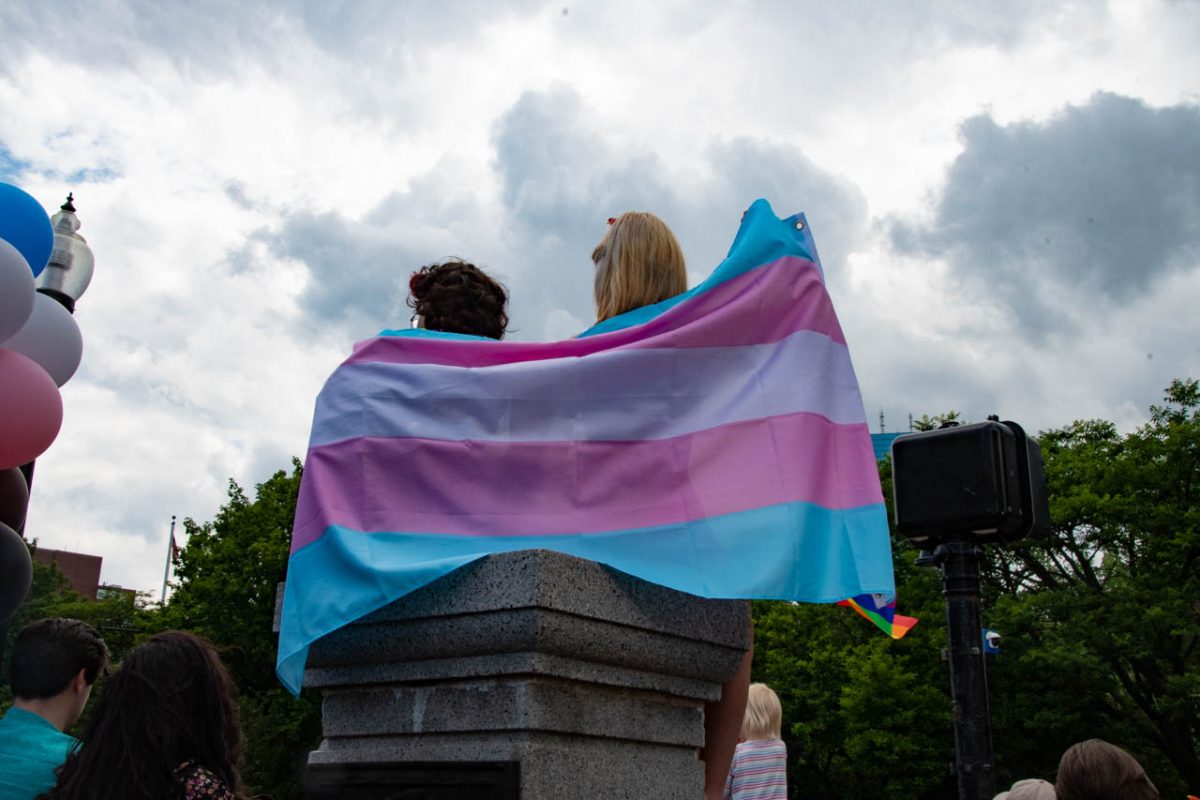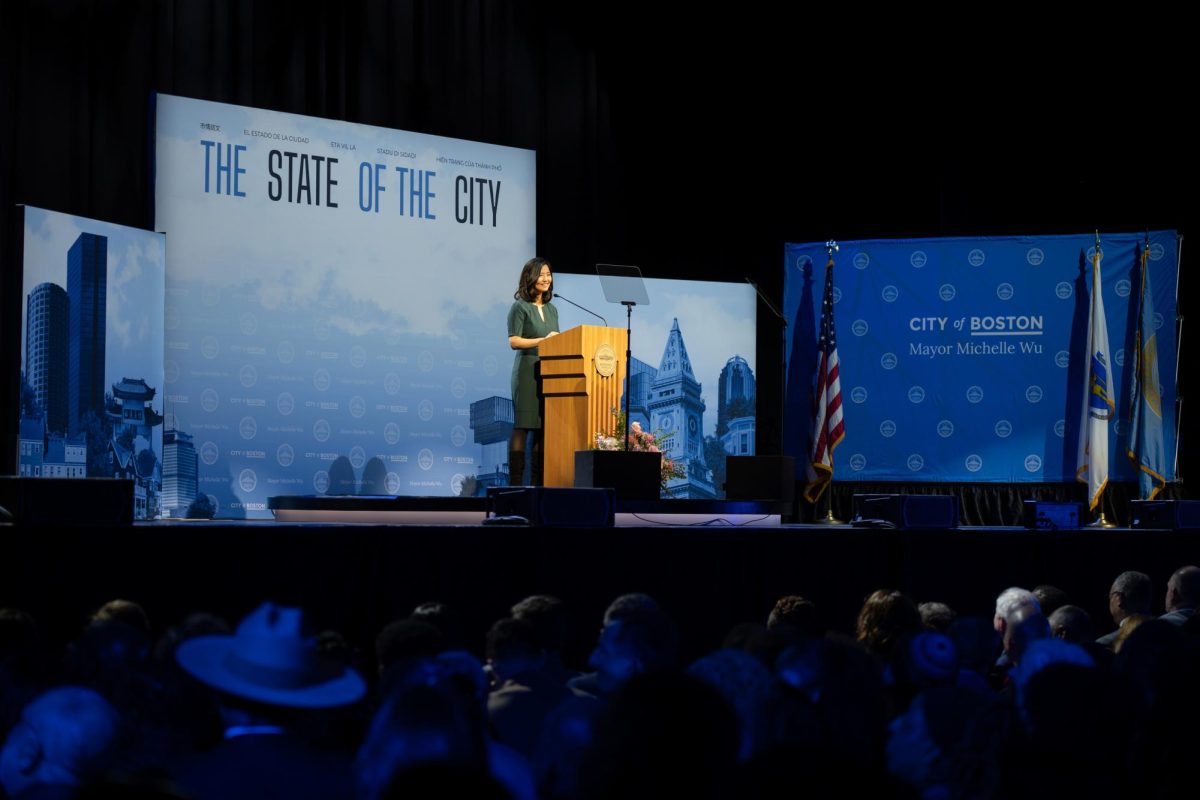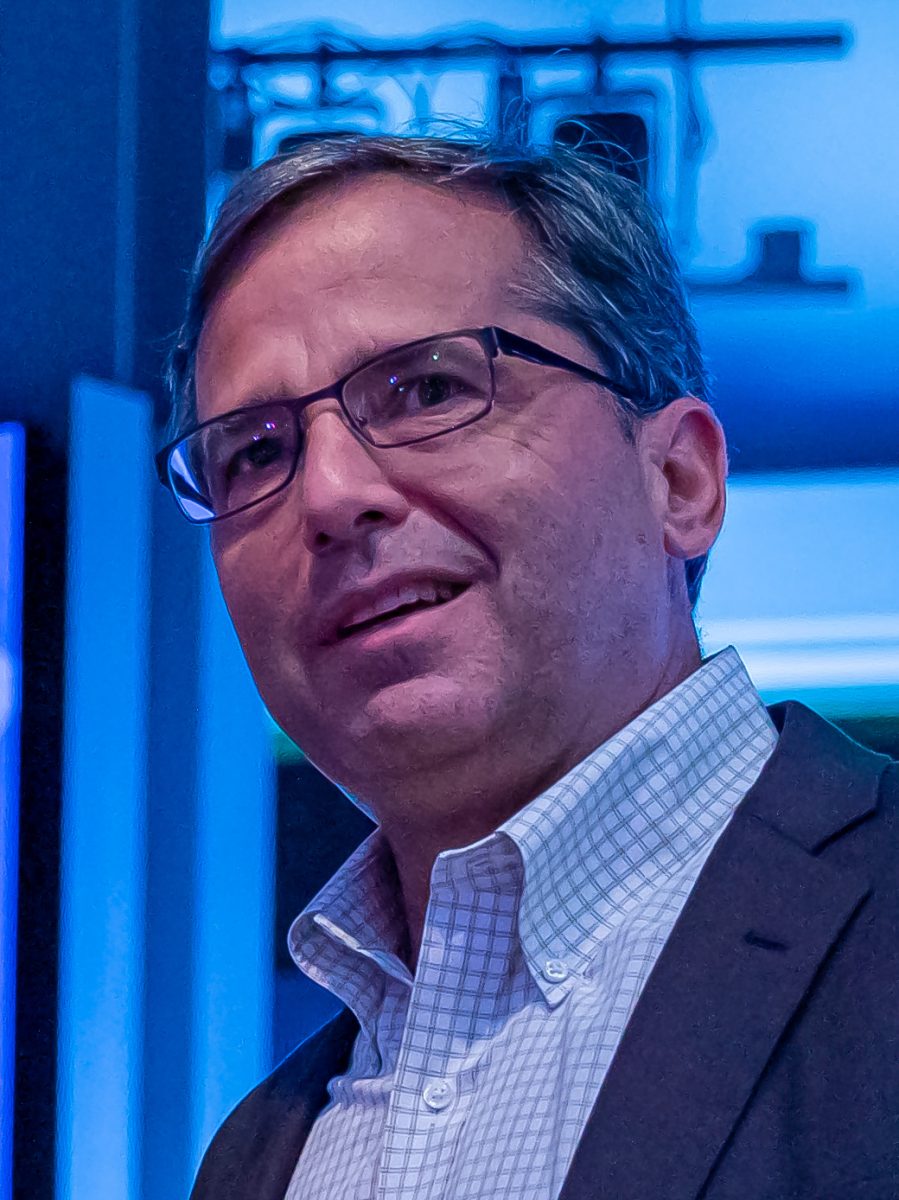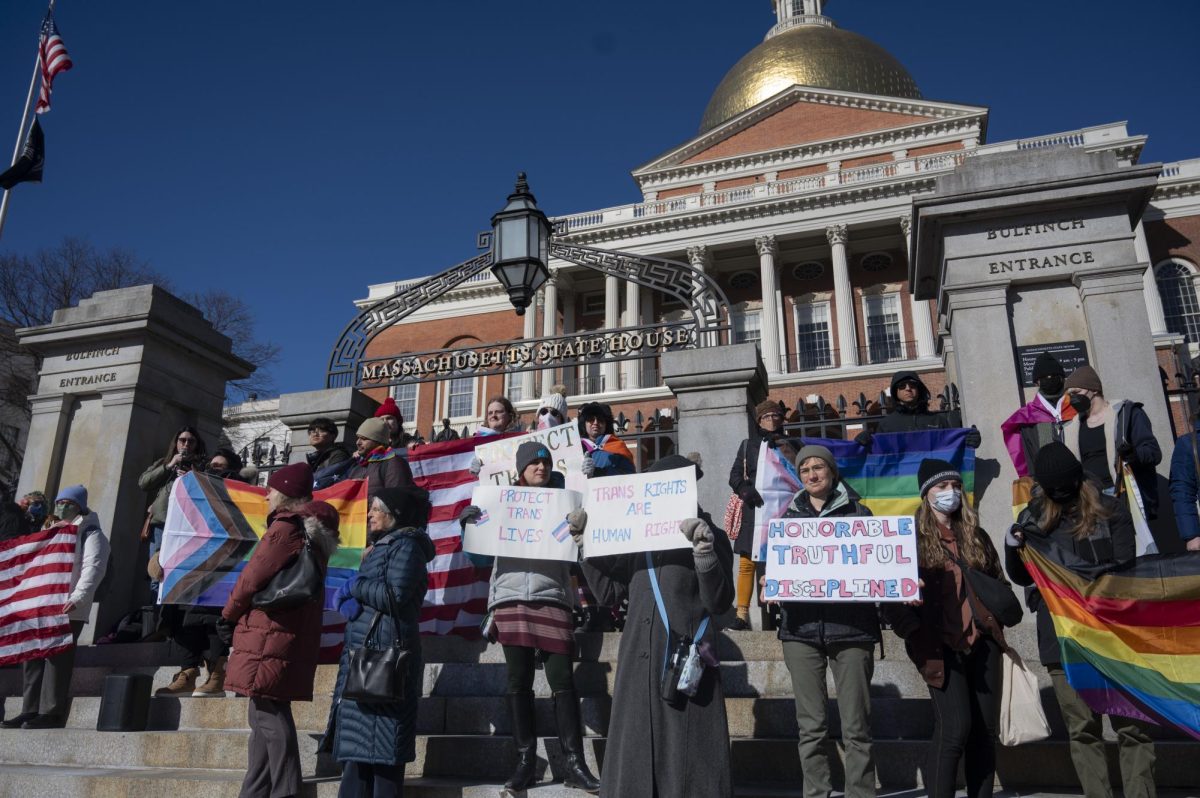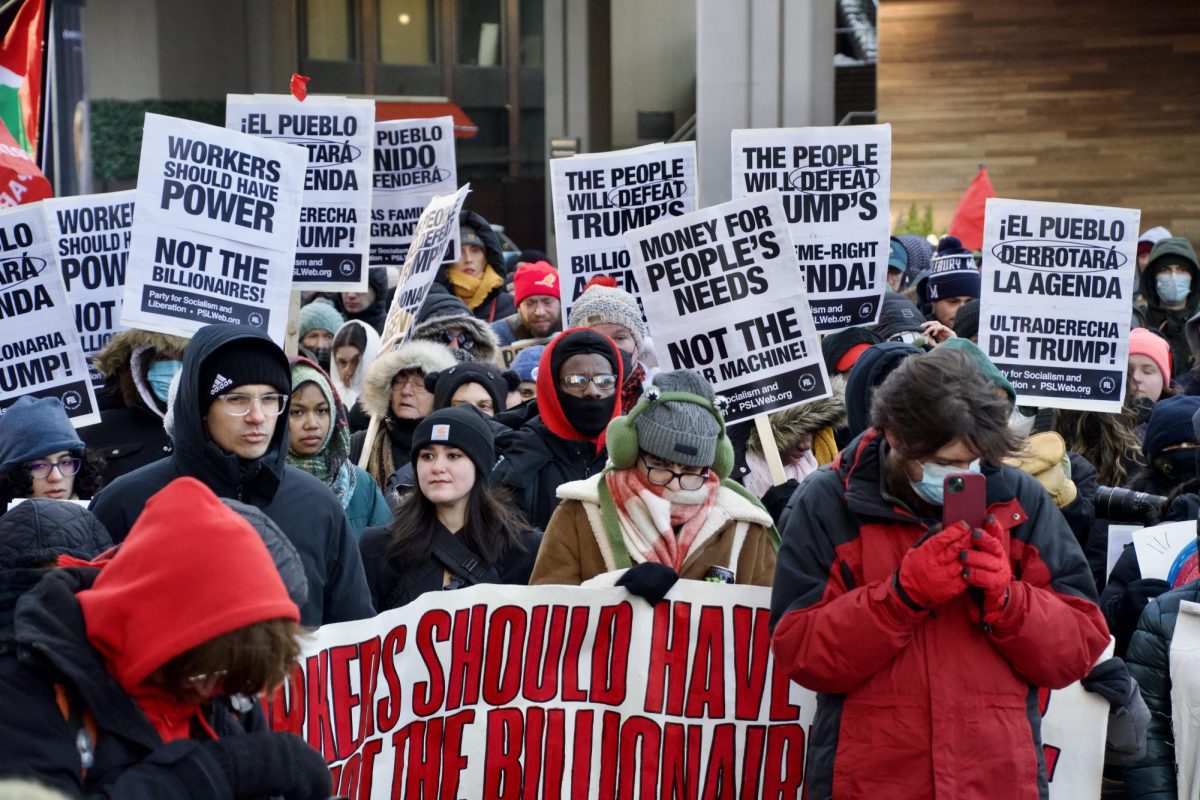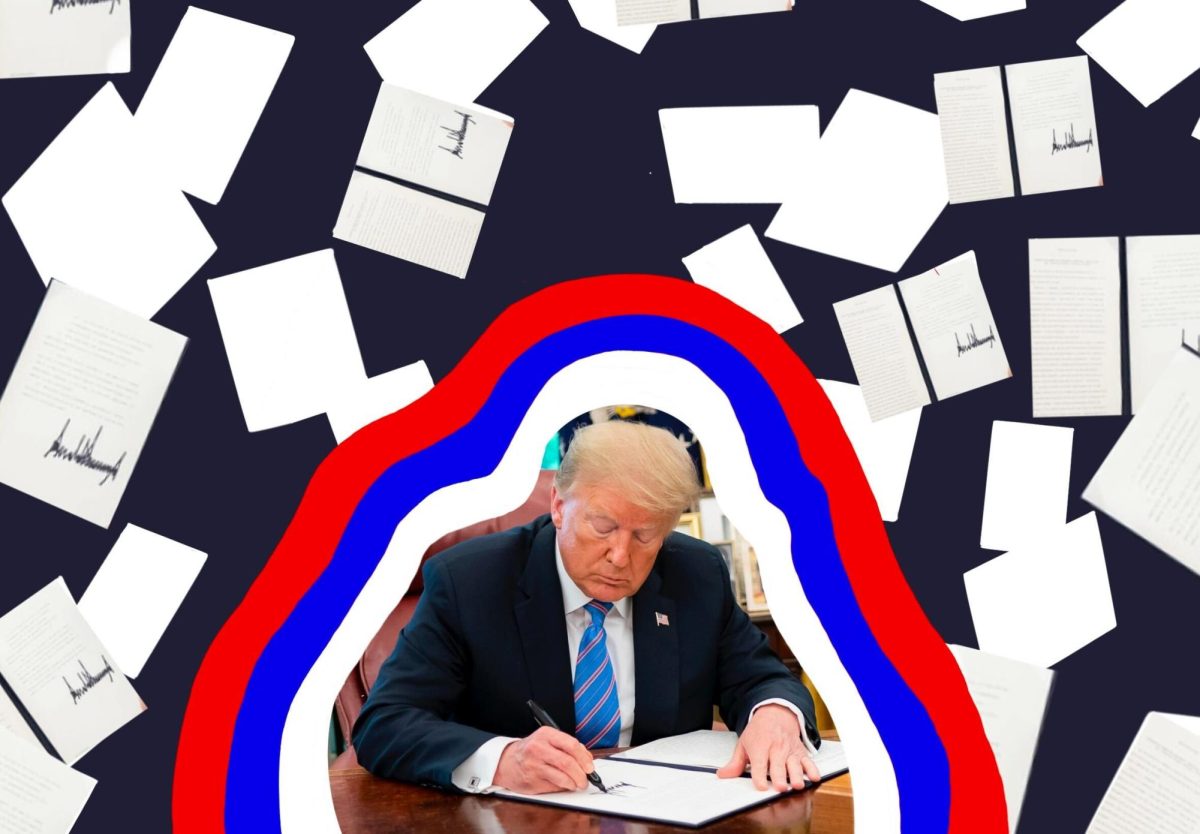Boston Mayor Michelle Wu firmly defended the city’s immigration and law enforcement policies at a six-hour-long congressional hearing in Washington March 5, where she faced questions from Republican lawmakers on Boston’s immigrant population and cooperation with federal immigration officers.
Wu, who was called to attend the hearing last month, entered the U.S. Capitol Visitor Center to face questions on Ash Wednesday with the sign of a cross drawn in ashes on her forehead and carrying her newborn daughter Mira, who she gave birth to Jan. 13.
In her opening statement to the U.S. House of Representatives Committee on Oversight and Government Reform, Wu touted Boston as the “safest major city in America,” pushing back on Republican lawmakers’ assertions that the city’s immigration policies are a threat to public safety. The designation as the “safest major city in America” has been echoed by additional Boston city officials, including Boston Police Commissioner Michael Cox.
“Every year since I took office, we’ve set a new record low for gun violence in Boston. Last year, Boston saw the fewest homicides on record in the last 70 years. Those are the facts,” Wu said. “And behind these record lows are historic highs. The most ever young people working paid summer jobs. The most pre-K seats at no cost to families. The most affordable housing built in a generation. We have invested in the kinds of opportunities that cultivate prosperity and eradicate crime.”
The hearing, which lasted nearly six hours, was chaired by Republican James Comer (R-KY). Wu appeared alongside New York City Mayor Eric Adams, Chicago Mayor Brandon Johnson and Denver Mayor Mike Johnston. Throughout the hearing, mayors were repeatedly cut off by representatives as they attempted to respond to questions about their city’s policies and compliance with Immigrations and Customs Enforcement, or ICE, officials.
Televised hearings today have largely come to be considered spectacles, offering lawmakers a stage on which to air political drama but contributing little in substantive legislative advancements. In preparation for contentious lines of questioning, Wu’s office reportedly spent up to $650,000 to prime the mayor to field representatives’ questions. But by the end of the six-hour testimony, nearly all congresspeople who had used their allotted five minutes to ask questions of the mayors had left the hearing room.
In the month leading up to the hearing, Comer announced an investigation into “the policies of sanctuary jurisdictions and their impact on public safety and federal immigration enforcement.” While there is no officially recognized definition of what constitutes a sanctuary city, the term generally refers to policies that limit or define the extent to which local government cooperates or shares information with federal immigration officers, according to Global Refuge, a refugee support organization.
The mayors largely avoided referring to their cities as sanctuary cities during the hearing. In response to a question from Comer about whether they considered their jurisdictions “sanctuary cities,” Johnson referred to Chicago as a “welcoming city,” and Wu called Boston a “safe city.”
“Sanctuary mayors owe the American people an explanation for city policies that jeopardize public safety and violate federal immigration law by releasing dangerous criminal illegal aliens back onto the streets,” Comer wrote in his letter summoning the mayors to Washington. “The policies in Boston, Chicago, Denver and New York City prioritize criminal illegal aliens over the American people.”
Last month, Tom Homan, a former ICE director who President Donald Trump appointed as his “border czar” to manage deportation of undocumented immigrants, threatened during a Fox News appearance that he was “coming to Boston” and “bringing hell with [him]” until the city complies with his demands.
“Shame on him for lying about my city, for having the nerve to insult our police commissioner, who has overseen the safest Boston has been in anyone’s lifetime,” Wu said after being asked about Homan’s comments. “I am here to make sure that the city of Boston is safe. Others may want to ‘bring hell.’ We are here to bring peace to cities everywhere.”
Throughout the hearing, lawmakers including Rep. Paul Gosar (R-AZ) and Rep. Eric Burlison (R-MO) posed questions and accusations claiming that “sanctuary policies are a violation of federal immigration laws” and that states are “flaunting” immigration laws passed by Congress. In response, Wu repeatedly called on lawmakers to pass bipartisan legislation addressing immigration.
“Congressman, respectfully, I’m the mayor of Boston. I don’t get to decide who comes into our country and where they go after that,” Wu said to Burlison. “Our job is to keep people fed and healthy and safe when they arrive in our city, and we do that in order to make sure that everyone across our community is safe. Resources are strained, but I would ask you to please do your job and be part of passing bipartisan legislation.”
“We don’t need to pass laws,” Burlison said in response. “All we need is a new president.”
Several Democratic representatives defended Boston’s policies and public safety, including Massachusetts Rep. Ayanna Pressley (D-MA), whose congressional district includes parts of Boston.
“It’s clear my colleagues across the aisle didn’t do their homework because the fears and division they’re trying to project onto Boston are really the stuff of Fox News fever dreams,” Pressley said. “Our city is vibrant, our city is diverse, our city is beautiful.”
Later, Comer spoke over Pressley as she attempted to enter a news article into the record, resulting in a heated shouting match between the two, with Comer calling Pressley’s actions part of a “trend of you all trying to get thrown out of committee so you can get on MSNBC.”
“Immigration defines Boston,” Pressley said, echoing Wu’s assertion that immigration is essential to the economic success of the city. Pressley argued that, contrary to Republican congresspeople’s arguments that Boston’s sanctuary policies create an environment of fear and a lack of security for residents, it was the Trump administration’s “anti-immigrant policies” that created a sense of fear in the city.
“All of our key industries, whether it’s healthcare, life sciences, higher education, financial services — Everything that we do depends on immigrant residents and the contributions that they make,” Wu said.



